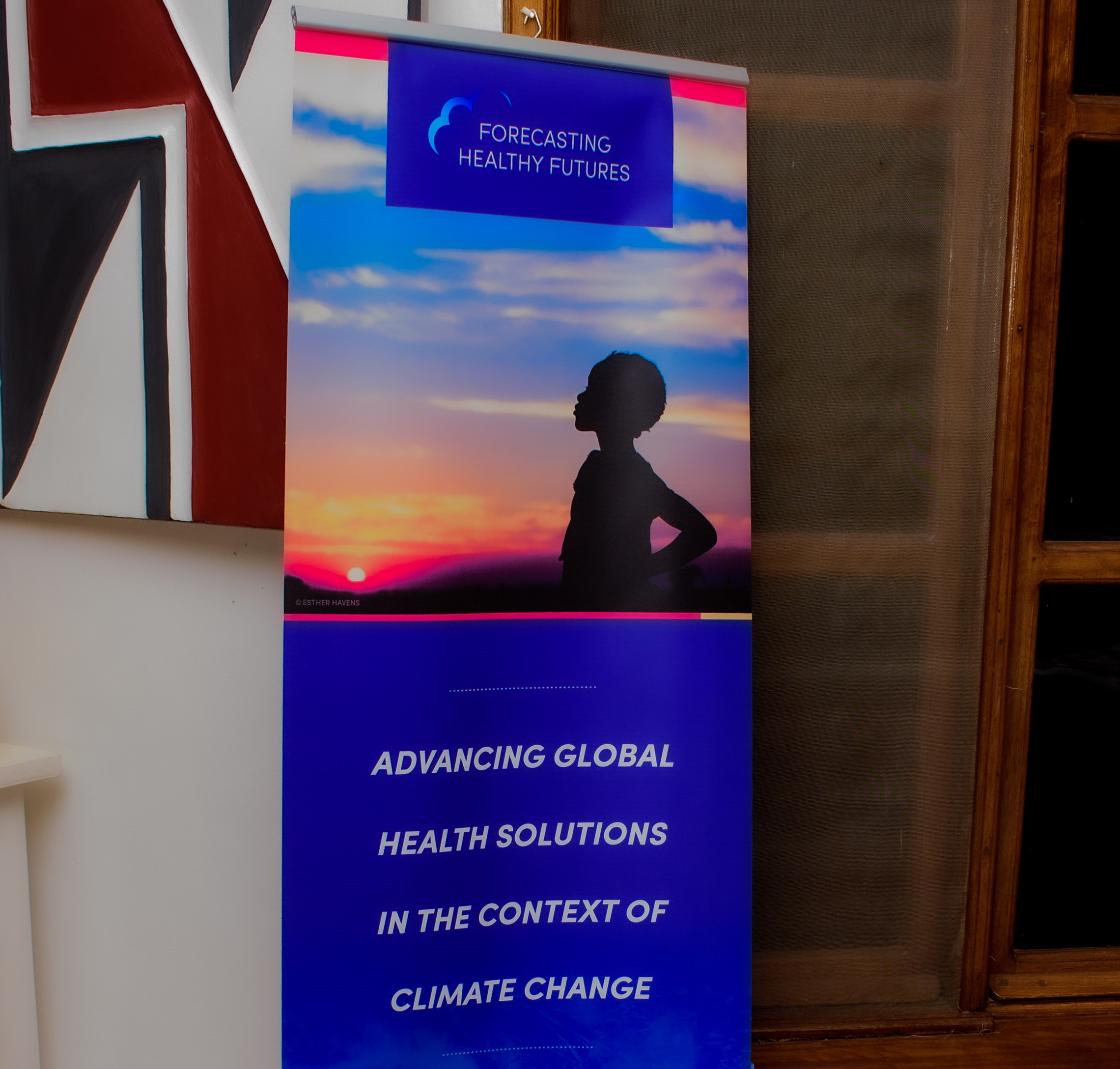The Kigali Summit on Malaria and Neglected Tropical Diseases (NTDs) concluded last week alongside the 26th Commonwealth Heads of Government Meeting (CHOGM), where world leaders reaffirmed commitments to end malaria and Neglected Tropical Diseases (NTDs) - diseases that afflict the lives and livelihoods of billions of people around the world.
On the sidelines of the Summit, Forecasting Healthy Futures, a collaborative initiative aimed at advancing global health outcomes using applied climate sciences, and its consortium members Malaria No More, GLIDE and Reaching the Last Mile, convened policy makers, scientists, and advocacy leaders to discuss the effect of climate change on the management of vector-borne disease in vulnerable communities around the world.

Climate Change is Hindering Global Efforts to Reduce Malaria
The Kigali Summit on Malaria and Neglected Tropical Diseases aims to turn up pressure on world leaders to recommit to halving malaria across the Commonwealth by 2023 and cutting malaria by 90% by 2030, but climate change is slowing progress. Rising temperatures, changing rainfall patterns and extreme weather events complicate efforts to control the disease, and put many millions more at risk of illness and death. As a result, the World Health Organization (WHO) indicates climate change could cause approximately a quarter of a million additional deaths per year between 2030 and 2050, from malnutrition, malaria, diarrhea, and heat stress.
Climate Change is Increasingly Threatening Vulnerable Communities
While malaria primarily affects populations living in poor socioeconomic conditions, with limited access to basic services, deteriorating environmental conditions, and limited access to basic health services, climate change could soon put millions more at risk worldwide. With warmer temperatures and variations in rainfall, malaria vulnerable areas are expected to expand. The latest Intergovernmental Panel on Climate Change (IPCC) report suggests global warming could double exposure to vector-borne diseases, like malaria, in Africa by 2050 – and nearly triple exposure by 2080. In South Asia, the report projects, under certain scenarios, those at risk of malaria infection could increase by 134 million by 2030. Infants, children under five, and pregnant women are particularly vulnerable to severe malaria illness.
“Climate change already impacts human health and, in fact, is having a disproportionate impact on the health of the world's most vulnerable populations...we hope that our focus on climate informed solutions through Forecasting Healthy Futures is just a step towards stronger integration of climate considerations across our programs.”
Tala Al-Ramahi, Director of Reaching the Last Mile Initiative

‘Climate Proof’ Innovations Offer Enormous Opportunities To End Malaria
Although climate change has been identified as the most important health threat of the century, it is also considered the “greatest opportunity to redefine the social and environmental determinants of health”. To support governments with better targeting and “climate proofing” malaria elimination efforts, Forecasting Healthy Futures launched in 2020 as a new initiative – convened by Malaria No More – to develop weather-data informed strategies and policies to help governments and partners better time and target effective health interventions in the face of changing weather patterns and an increase in the frequency of extreme weather events. In January 2022, the Institute for Malaria and Climate Solutions (IMACS) was launched as a virtual center of excellence to advance climate-informed malaria prediction and planning. The IMACS Malaria Prediction and Planning Toolkit today combines multiple sources of complex and dynamic data, applies advanced modeling techniques, machine learning and artificial intelligence, and produces simple decision support tools for malaria program managers in support of applying and effectively integrating in malaria control programs worldwide.
"Everybody here knows that climate change affects health and livelihoods. But nobody here can tell me what's the effect of rainfall on malaria incidence in Africa or the effect of rainfall on malaria incidence in the Amazon. Because we don't have that data. We don't have it measured very well.”
William Pan, Associate Professor of Global Environmental Health, Duke University

Climate Change Investments are Critical to Accelerating Malaria Elimination Goals
Given the impact climate change is having on human health and its disproportionate effect on the most vulnerable and disadvantaged communities, the Global Fund to Fight AIDS, Tuberculosis and Malaria introduced a new strategy in 2021, highlighting the threat and impact of climate change, and calling for increased efforts to innovate, address, mitigate and adapt to the effects of climate change. To get back on track to toward 2030 targets, including reducing the global malaria burden by 90%, the Global Fund aims to raise at least $18 billion at its 7th Replenishment this Fall.
"We're seeing resources being diverted. We're witnessing cost of living challenges, supply chain challenges, and possible food supply challenges…and that's all exacerbated by the prospect of climate change. Also, the challenge of antimicrobial resistance and market failures that don’t provide the incentive to create the tools we need to get.”
Simon Bland, CEO of GLIDE
At the conclusion of the summit, Commonwealth leaders adopted The Living Lands Charter, aimed at addressing climate change. In addition, Forecasting Healthy Futures committed to further advancing global health solutions in the context of climate change, including announcing plans to host an international conference in early 2023 to build upon innovative solutions at the intersection of health and climate change.
Learn more about Forecasting Healthy Futures




